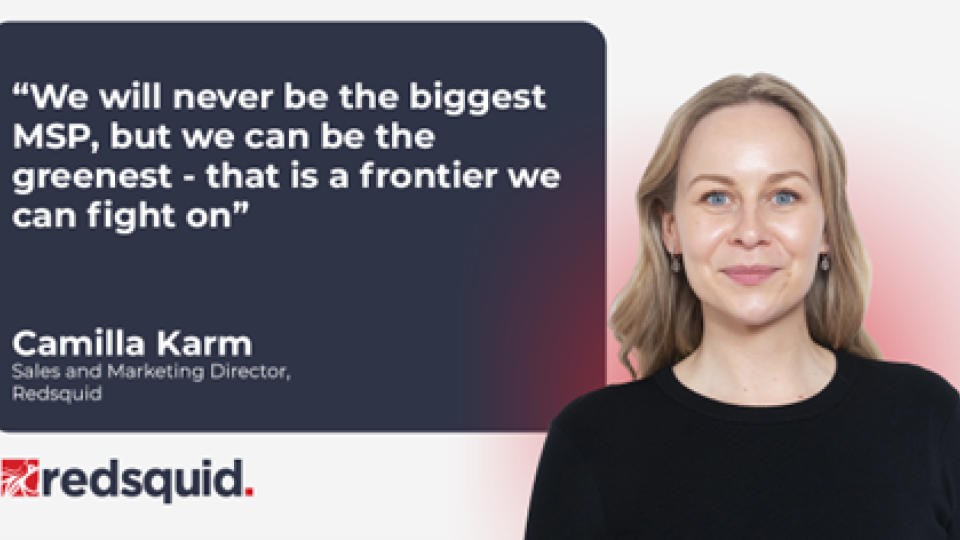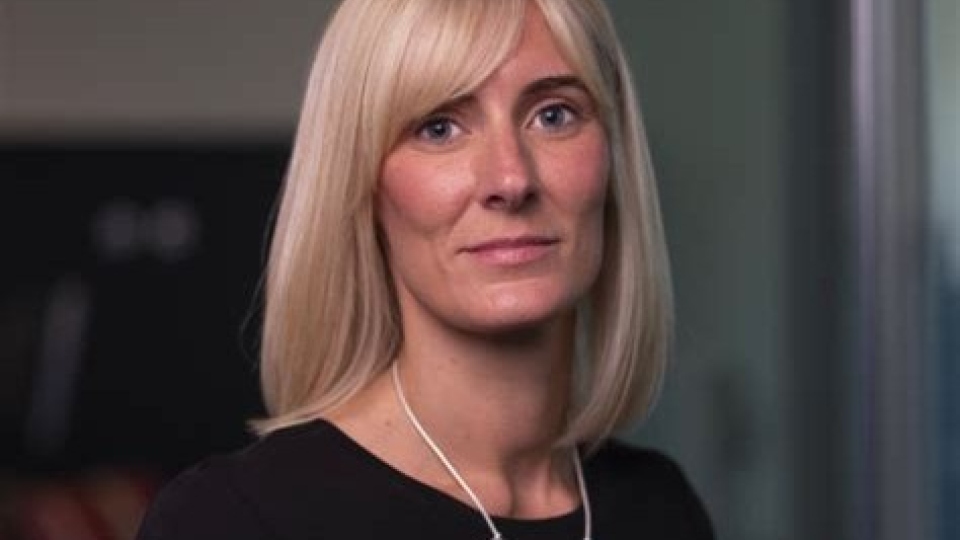
Redsquid doubled its revenue and headcount in 2024 by following a growth strategy underpinned by robust sustainability commitments, according to Director of Sales and Marketing Camilla Karm taking to IT Europa ahead of its upcoming High Growth 50: Sustainability report. Here, she explains how the company’s green agenda will spur continued success in 2025 by dictating strategy across M&A, partnerships and employee engagement.
Borehamwood-based IT MSP Redsquid is five years into its sustainability journey and hit a major milestone in February 2024 by achieving B Corp certification to validate its work. Karm, who led the organisation’s sustainability proposal, said that it kicked off a pivotal year for the company that saw it double revenues and staff numbers and agree a refinancing partnership with ThinCats designed to position the company for substantial growth in 2025.
Sustainability will guide this next growth phase as Redsquid looks to streamline its vendor stack for greater efficiency. Karm said: “In 2024 we have onboarded many new suppliers through acquisitions, and we are now looking to scale down by picking the strongest partners.” This will include a sustainability audit that will weigh very heavily into decision-making, according to Karm. “This will also help to reduce our Scope 3 emissions, killing two birds with one stone,” she said.
Redsquid’s sustainability will also factor into further acquisitions with the MSP being careful not to dilute its value system whilst onboarding new teams and company cultures. Before completing any deal, Redsquid puts potential acquisitions through a sustainability due diligence process. “If anything is flagged that is not in line with our sustainability efforts, then the company will not be acquired,” added Karm. This also alters how the company plays in certain industries and verticals, such as oil and gas, which Redsquid avoids expanding into.
Alongside M&A, organic growth remains a focus for Redsquid, with Karm noting that B Corp status provides competitive leverage as a market differentiator. “It’s a competitive industry and standing out is about providing something unique which is an extra value add to customer,” she said. “We know we will never be the biggest MSP, but we can be the greenest. That is a frontier we can fight on, and we want to be considered as a leading company in the space because of the positive direction we are driving the industry.”
This is something increasingly valued by customers, according to Karm. She said: “Clients increasingly want to work with sustainability-focused businesses, especially large enterprises with their own targets and public sector contracts with Social Value requirements.” Karm noted that it has also strengthened bonds with existing customers and enhanced their trusted advisor status. “Our clients took pride in us stepping ahead of the crowd and want to engage with the journey,” she added. “The partnerships that we have with our customers are massive we talk with pride about how we are integrated into their businesses, so we have a responsibility to make an impact for the better.”
Purpose-driven people
Recruitment is key to organic growth, with Karm emphasizing that sustainability gives Redsquid an edge in this area. She states that Redsquid has stopped using recruiters as candidates are now approaching the company organically. “People are applying for roles citing our B Corp status as a reason for wanting to join us,” she said. “People, especially young people, are seeking to work for organisations that are purpose-led and mission driven.” Sustainability training is part of the induction process for any new starters at Redsquid.
She noted that Redsquid has embedded this into its culture but accepted that this wasn’t an overnight change. “B Corp required lots of back-end changes and system restructuring, but this isn’t something the staff can see and get behind.” Instead, Karm led the sustainability process by making changes visible and tangible so people could understand the drive, live it day-to-day, and then fully invest in it. This included implementing a recycling scheme, getting rid of all single-use plastics and introducing a walking scheme which made sustainability habitual. Karm said: “At this point, people were constantly talking about it, and we made it a part of our business updates and check-ups.”
Join the social value ecosystem
Redsquid is proof of the principle that green companies want to work with other green companies. Karm stated that Redsquid now works with many other B Corps that have been drawn together by values. She encouraged other resellers to join this value-driven ecosystem. “The industry, and service companies in general, have their head buried in the sand when in comes to sustainability,” she said. “Considering we are such a future-thinking sector, no one seems to see the impact they are having on the environment and the future.” She suggested organisations start by prioritising data and visibility through frameworks such as B Corp. “This gives you action points and that is super motivating. Make it measurable and that means your entire team can get involved.”



